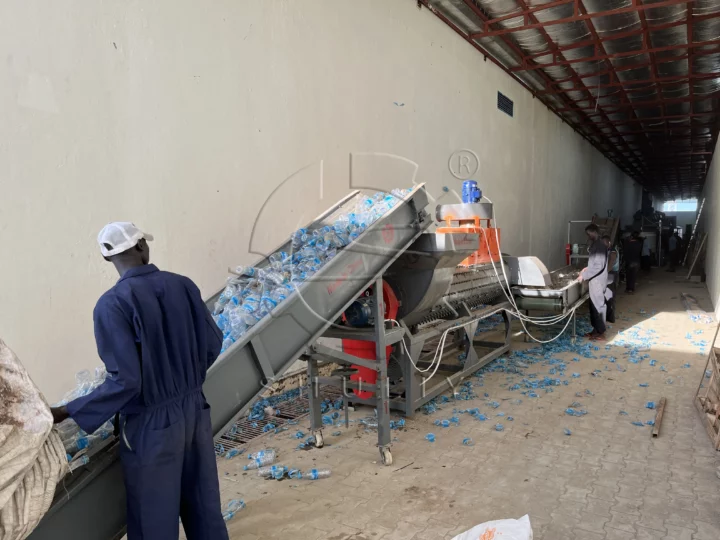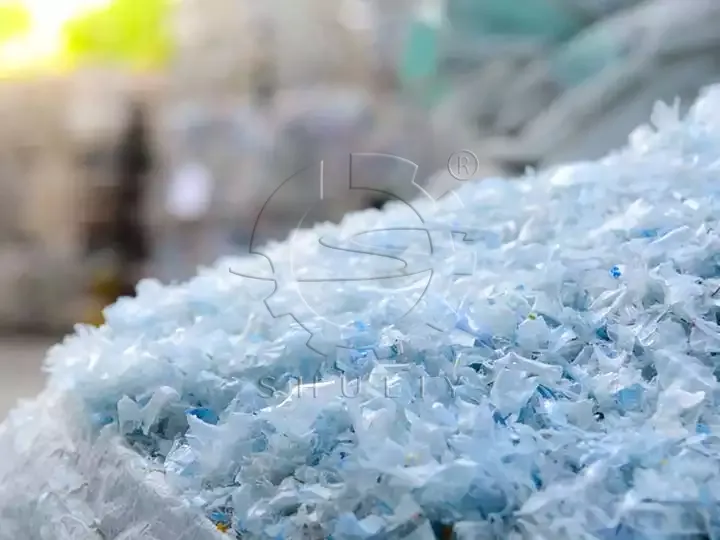
Serpihan botol PET merupakan bahan daur ulang yang penting dalam industri daur ulang plastik dan banyak digunakan dalam pembuatan botol baru, bahan kemasan, dan tekstil. Harga serpihan botol berfluktuasi seiring dengan perubahan permintaan pasar. Memahami faktor-faktor utama yang mempengaruhi harga serpihan PET membantu pendaur ulang dan produsen mengambil keputusan yang tepat selama proses pembelian dan penjualan.
Proses Daur Ulang Botol PET
Proses daur ulang botol PET mencakup beberapa langkah seperti penghapusan label, penghancuran, pencucian, pemisahan, pengeringan, dll., dan efisiensi serta kualitas langkah-langkah ini terutama bergantung pada peralatan daur ulang botol PET yang digunakan.
Peralatan daur ulang yang efisien dapat dengan cepat memproses botol PET dalam jumlah besar untuk menghasilkan serpihan berkualitas tinggi, meningkatkan efisiensi produksi, dan mengurangi biaya pembuangan. Peralatan berteknologi maju menghilangkan lebih banyak kotoran dan meningkatkan kemurnian serpihan, sehingga menghasilkan harga yang lebih tinggi di pasar.
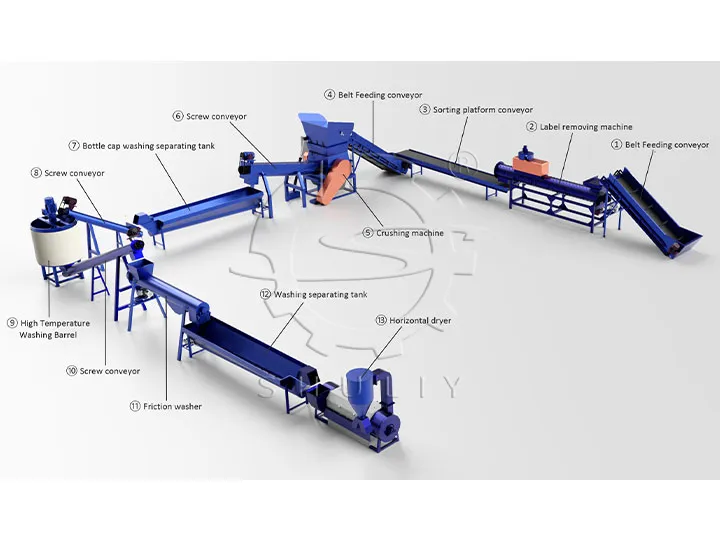
Warna Serpihan Botol PET Daur Ulang
Warna serpihan botol PET merupakan faktor penting yang mempengaruhi harganya. Serpihan botol transparan atau berwarna terang memiliki harga lebih tinggi karena penggunaannya yang luas dan permintaan yang tinggi; serpihan berwarna hijau, biru, dan lainnya memiliki penerapan terbatas dan harga lebih rendah; dan serpihan berwarna gelap atau bermacam-macam memiliki kemurnian lebih rendah, penggunaan terbatas, dan harga terendah.
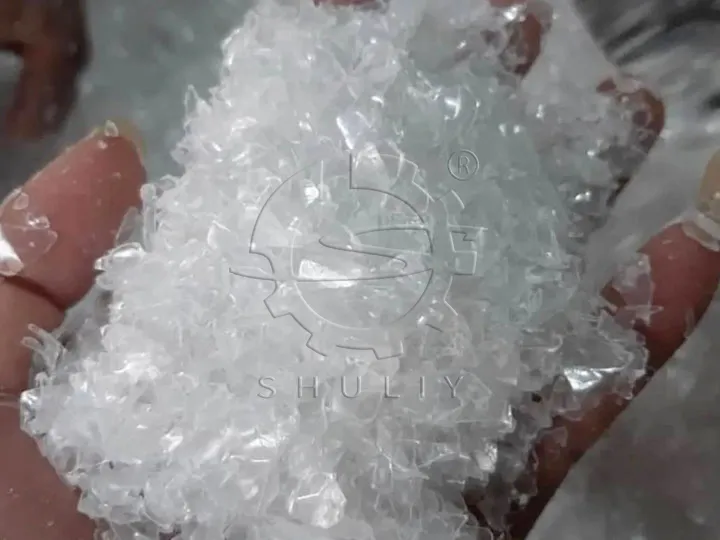
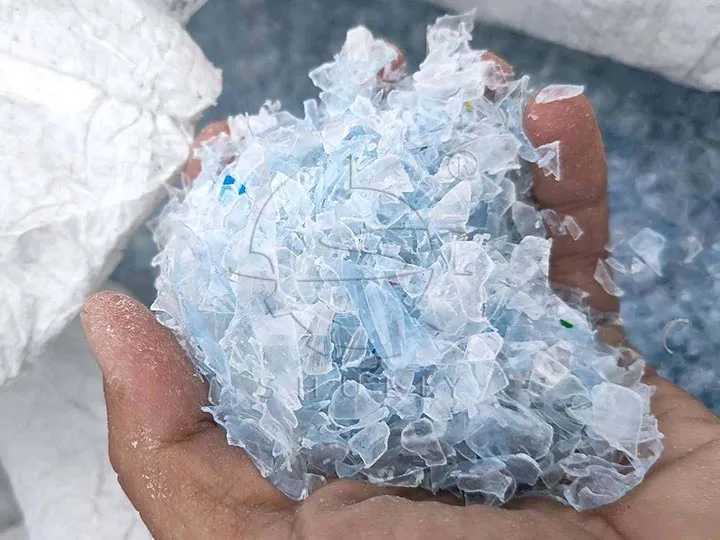
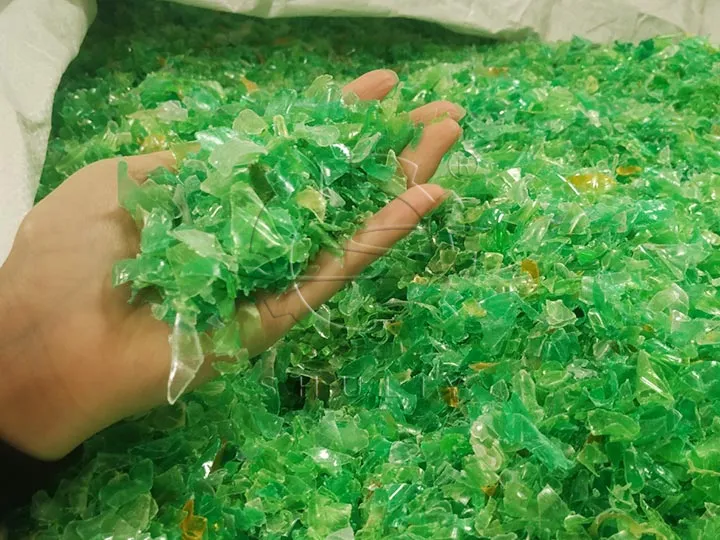
Permintaan Pasar
Permintaan pasar terhadap bahan PET daur ulang secara langsung mempengaruhi harga serpihan botol. Bahan PET daur ulang banyak digunakan dalam produksi botol, kemasan, dan tekstil baru, dan harga naik ketika permintaan meningkat dan turun ketika permintaan menurun atau pasokan mencukupi. Permintaan musiman, fluktuasi ekonomi, dan perubahan kebijakan juga mempengaruhi permintaan pasar.
Harga Bahan Baku
Harga serpihan PET terkait erat dengan harga bahan PET murni. Ketika harga bahan baku naik, serpihan PET daur ulang menjadi alternatif yang lebih hemat biaya, sehingga meningkatkan permintaan dan harga.
Sebaliknya, ketika harga bahan baku turun, perusahaan cenderung lebih memilih menggunakan bahan baru, sehingga mengurangi permintaan akan serpihan daur ulang dan menurunkan harga. Oleh karena itu, fluktuasi harga bahan baku mempengaruhi harga serpihan botol PET secara langsung.
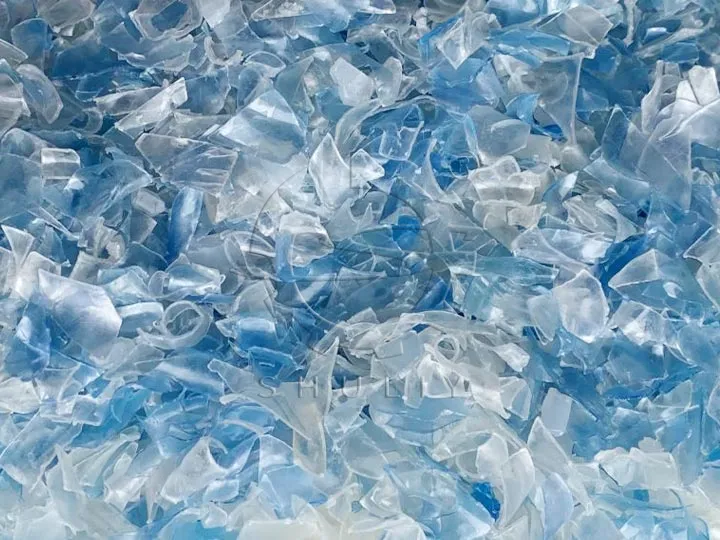
Biaya Pemrosesan
Daur ulang dan pemrosesan kepingan botol PET mencakup langkah-langkah seperti penghapusan label, penghancuran, pencucian, dan pengeringan, yang mengonsumsi tenaga kerja, energi, dan biaya pemeliharaan peralatan, yang mempengaruhi harga kepingan botol. Jika biaya listrik, tenaga kerja, atau pemeliharaan meningkat, perusahaan biasanya akan meneruskannya ke harga botol, sehingga efisiensi produksi dan optimisasi proses juga berdampak pada harga.
